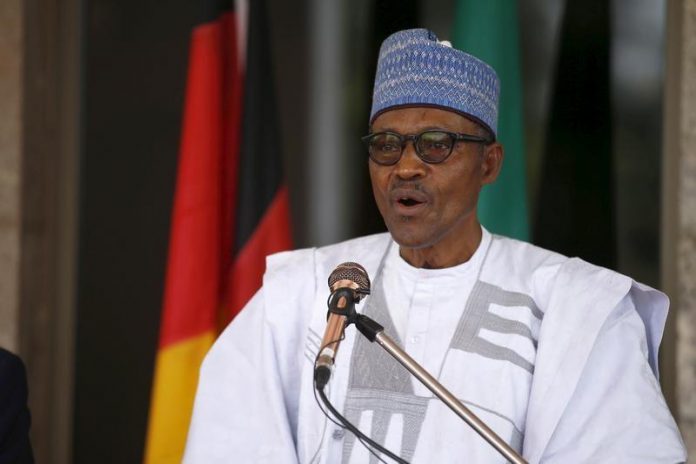As Nigeria, Africa’s largest economy was believed to have exited its worst recession in 29 years on Tuesday, financial analysts have urged the Federal Government to focus more on privatisation of its major sectors, while also continuing with its capital growth projects’ funding, so as to sustain its vision for economic recovery.
The latest economy report from the National Bureau of Statistic (NBS) showed that Nigeria’s Gross Domestic Product (GDP) growth rate for the second quarter (Q2) 2017 grew by 0.55 per cent (year-on-year), representing 2.04 per cent higher than the rate recorded in the corresponding quarter of 2016 (-1.49%) and higher by 1.46 per cent points from rate recorded in the preceding quarter, which was revised to –0.91 per cent from –0.52 per cent due to revisions to crude output for March 2017.
Speaking exclusively with The Daily Times on a telephone chat, Chief Executive Officer, Economic Associates (EA), Dr. Ayo Teriba, said, “You can only hope that the trend is sustained, because the entire sector grew, except services.”
He explained that Nigeria went into recession partly because of the decline in oil price and partly because of decline in oil production, adding that it was the decline of oil sector that got down the non-oil sector, because it is the oil sector that supplies the foreign exchange they required.
“So in the absence of adequate foreign exchange, the non-oil sector got declined as well, which was the beginning in 2016 but now, the price has recovered enough and the quantity has recovered enough”, he further explained.
According to him, the oil sector hadn’t grown since the first quarter of 2016, so sustenance of growth is that the peace between the Niger Delta nationalists and that government be maintained that there is no destruction to oil production.
“If the current oil prices can be sustained at the current rate, then the Nigerian economic growth can be enhanced. Aside from the oil sector, the other source of foreign exchange that is open to Nigeria which is increasingly being adopted is to attract foreign exchange, especially though privatisation of state own enterprises.
“Saudi Arabia was in similar situation with Nigeria in May, they are now into privatisation programme for 16 sectors and that they aim to attract $200 billion in foreign exchange investment, but through partial privatisation of 16 sectors including oil, education, health, and sport, among many others.
“Nigeria too can do same. If we privatised even in the face of recession, we would have recovered all that we have lost.
So, privatisation is another way for the sustenance of the recovery”, he advised. Also, commenting on the development, a Professor of Financial Economics, University of Uyo, Leo U. Ukpong, said that the new GDP growth can be sustained, if the Federal Government can continue to pump in some activities into the economy.
“They have to continue funding capital growth projects, so as to sustain the recorded economic growth”, he said. He, however, added that coming out of recession is good news, “but I think we are only out of recession technically, because it is positive. Even though we are not out of the zone of not worrying, because it can drop back very quickly.”
“Because the contraction of 0.55 per cent recorded in the Q2 according to the latest report from the NBS showed a very weak recovery, representing a barely half per cent. Anyways, it is good news other than not strong but weak growth,” he added.
Considering the contributed sectors, he said that Manufacturing is always well emphasised, but “agriculture is very unstable because the price of agricultural to the group is very volatile.
Even though we are pumping a lot of money, I’m not sure we are gaining out of the report on agriculture. I think they put a lot of money into farming, but if manufacturing contributed that is good news because that is what will sustain and solve long time unemployment challenges”.
Similarly, the Chief Economist for Africa at Standard Chartered, Razia Khan, noted that the new GDP growth report is not at all a robust GDP print. A regional economist at Rand Merchant Bank, Celeste Fauconnier, said that it still falls far short of the growth rates the Nigerian economy should be achieving, regardless of growth moving back into positive territory, it remains fragile.
He, however, predicted a full-year expansion of just 0.5 percent, adding that an undiversified production base, a host of structural rigidities and persistent security troubles point to a prolonged and gradual recovery period. But for the Director of Research and Development, LCCI, Mr. Vincent Nwanne, agreed with the new NBS’ GDP growth figure, saying that it was a good development.
He said that the improvement in the nation’s GDP growth rate showed that confidence is now returning back to Africa’s largest economy.
Nevertheless, the Oil GDP expanded considerably in the second quarter of 2017, Non-oil GDP only grew at 0.45 per cent, down from 0.72 per cent in the preceding quarter and -0.38 in the corresponding period in 2016.
It also showed that agriculture continued its strong and positive growth, which it had maintained throughout the recession, growing by 3.01 per cent in Q2 2017, from 3.39 per cent in Q1 2017 and 4.53 per cent in Q2 2016.
view of reported economic positive growth, Special Adviser on Economic Matters to the President, Dr. Adeyemi Dipeolu, attributed the positive growth to both the oil and non-oil sectors of the economy. Meanwhile, Dr. Titus Okunronmu, a former Director, Budgetary Department, Central Bank of Nigeria (CBN), reacted that Nigeria’s economy had been experiencing depression rather than recession since 2015.
Okunronmu, on Wednesday said in Ota, Ogun State that a recession could only last for a quarter or two. According to him, when a recession is longer than two quarters, it is called depression not recession.
The former director noted that the Nigerian economy had been in depression since 2015; and which extended to 2016.
”Nigeria was in depression as a result of the inability of the Federal Government to do the right thing, while the fall in crude oil prices in the international market also affected the economy,” Okunronmu said.




